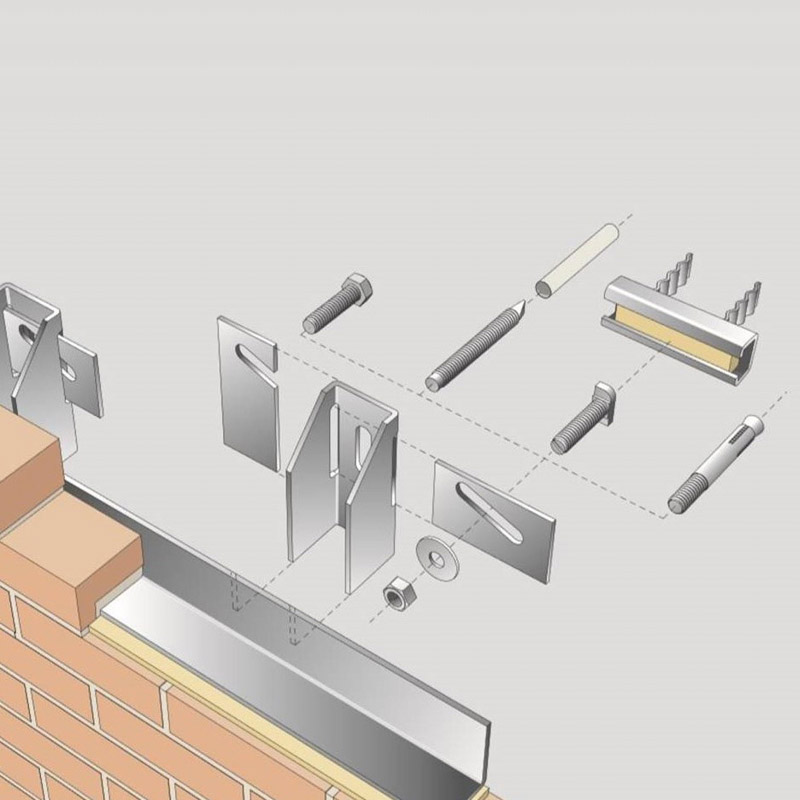
- Mobile Phone
- +8613931874955
- sales@cntcmetal.com
masonry wall ties and anchors
Understanding Masonry Wall Ties and Anchors
Masonry wall ties and anchors play a crucial role in ensuring the structural integrity and stability of brick, stone, and block walls. These components are essential in masonry construction, where they provide support and enhance resistance to various external forces, ensuring that buildings remain safe and durable over time.
What are Masonry Wall Ties?
Masonry wall ties are metallic pieces that connect the masonry wall to its supporting structure, typically another wall or a frame. Their primary purpose is to provide lateral support to the masonry wall, preventing it from bowing or collapsing under its weight or due to environmental factors such as wind loads. They help in maintaining the alignment of the wall and distribute loads evenly across the structure.
Wall ties are typically made of steel or other corrosion-resistant materials, which are essential given the exposure to moisture and varying weather conditions that masonry walls often experience. The most common types of masonry wall ties include
1. Flexible wall ties Typically made of stainless steel or galvanized steel, these ties allow for some movement and are suitable for many types of masonry construction. 2. Rigid wall ties These offer more structural support and are often used in applications where maximum stability is required, such as in taller structures.
3. Corrugated ties Featuring a wave-like design, these ties provide added strength and are beneficial in resisting shear forces.
What are Masonry Anchors?
Masonry anchors are devices used to secure fixtures or components to masonry walls. They are essential for attaching various elements, such as shelves, frames, and other heavy installations, ensuring they remain secure and stable. Anchors work by expanding within the masonry material or gripping its surface to distribute loads effectively.
There are several types of masonry anchors, including
masonry wall ties and anchors

1. Expansion anchors These anchors expand as they are tightened, gripping the masonry tightly. They are commonly used for heavier installations.
2. Sleeve anchors Similar to expansion anchors, sleeve anchors provide a robust solution for attaching fixtures to masonry. They consist of a threaded bolt housed within a sleeve that expands against the masonry as it is tightened.
3. Toggle bolts Designed for hollow walls or softer masonry, toggle bolts feature a wing-like mechanism that spreads the load over a larger area within the wall.
4. Adhesive anchors These utilize a strong adhesive to bond the anchor to the masonry surface, making them ideal for applications where traditional mechanical anchors might be challenging to install.
Importance of Proper Installation
Proper installation of masonry wall ties and anchors is vital. Incorrect installation can lead to serious structural issues, including wall failure, which poses significant safety risks. During installation, factors such as spacing, alignment, and the selection of the appropriate type of tie or anchor must be considered based on the specific masonry construction and environmental conditions.
Building codes and standards often dictate the requirements for wall ties and anchors based on the building's height, exposure conditions, and anticipated loads. Adhering to these guidelines ensures the building is not only compliant but also safe and durable.
Conclusion
In summary, masonry wall ties and anchors are indispensable components in masonry construction, providing essential support and stability to structures. Understanding their functions, types, and installation requirements can significantly impact the longevity and safety of masonry buildings. As technology and materials continue to advance, the development of more effective masonry ties and anchors will further enhance the reliability of masonry construction, making it a preferred choice for architects and builders worldwide. Always consult with a structural engineer or a building professional when planning construction projects involving masonry to ensure the correct application and compliance with current standards.
share:
-
Your Source for Concrete Wall Ties and Masonry AccessoriesNewsJul.10,2025
-
Unlocking the Power of Iron Wire for Every ProjectNewsJul.10,2025
-
Explore Advanced Chain Wire and Stainless Steel Mesh FencingNewsJul.10,2025
-
Discover the Benefits of Annealed Wire ProductsNewsJul.10,2025
-
Discover China Stainless Steel Wire Mesh SolutionsNewsJul.10,2025
-
Build with Confidence Using High-Performance Masonry AccessoriesNewsJul.10,2025
-
Why Sacrificial Formwork Is Redefining Underground ConstructionNewsJun.06,2025



















